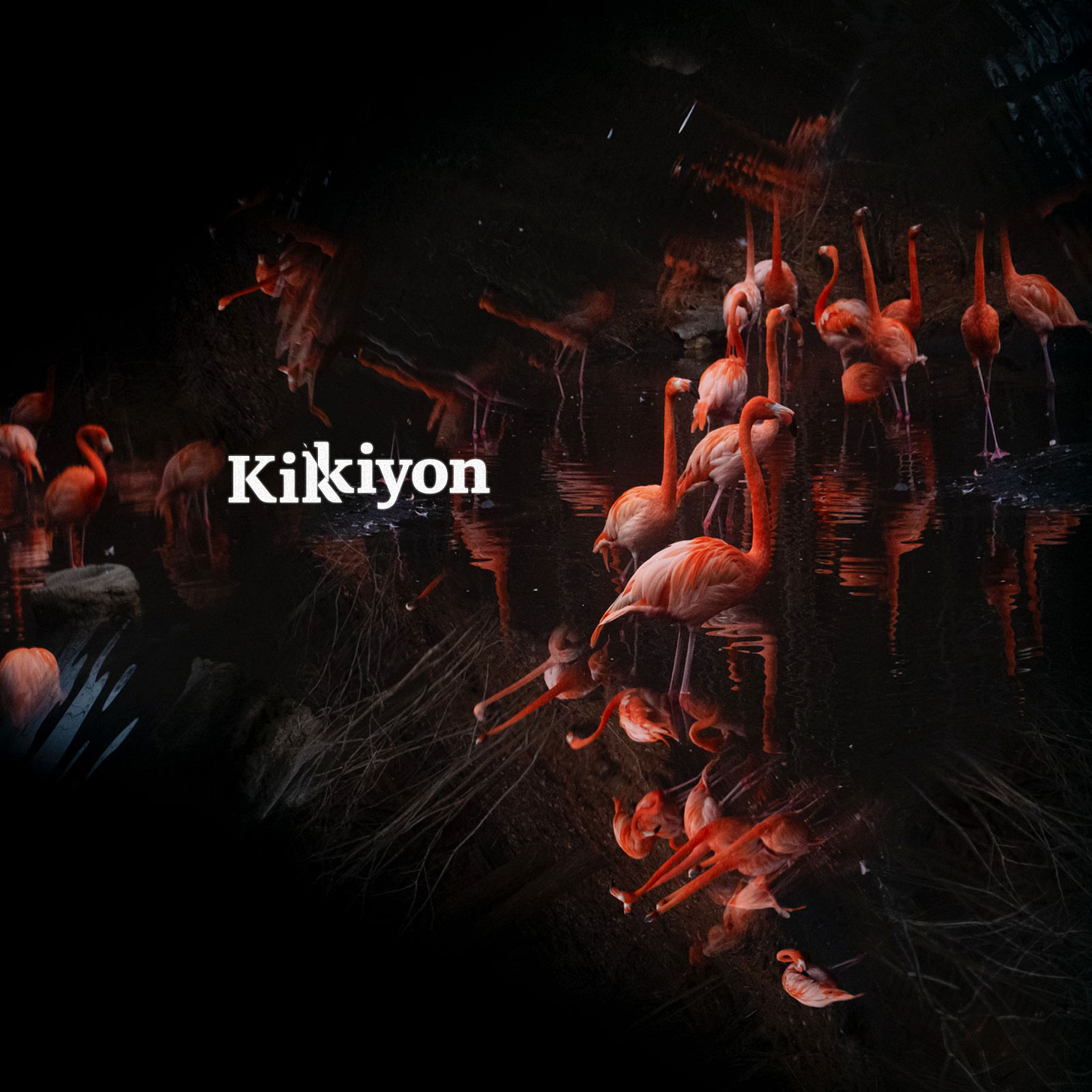If you’ve been reading the Gazette for a while now, you know the deal. If you’re new ‘round here, then listen up: subscribing to the Gazette doesn’t just provide you a somewhat regular peek behind the gooseberry-colored curtain to see how it all gets made. Joining the flock gives you a first listen of any new music we’ve got.
Today is one of those days.
We hit the stage tonight at the legendary Baby’s All Right to celebrate the release of our new single, Kikiyon. Many of you will be there. Now you’ll be the ones who know the song when we play it:
You can also pre-save it to your music streaming outlet of choice here.
But wait, there’s more!
We made perhaps the stupidest, raddest, absurdist music video for this song you’ve ever seen.
It was directed by the illustrious Charlie Hull, who you can see smash some drums for Mary Shelley tonight at Baby’s All Right!!
So what’s this about a bird?
Look, the thing about creation is everyone gets their own interpretation once the thing is made. That’s beauty of art1.
I’ve lived with this song for the better part of a calendar year now and since tomorrow Kikiyon is officially the world’s to create its own meanings, I wanted to put down some thoughts on what the song means to me.
A simple message
First and foremost, it’s a giant go fuck yourself to anyone who ostracizes or intentionally puts down other folks for not adhering to their one viewpoint.
What’s the point in pointless debate?
Why is how someone lives their life any of your damn business?! In this country, we see this time and time again. Hell, we just watched women’s reproductive rights and autonomy flung out the window on a similar basis.
What’s in a name?
Secondly, there’s the name: Kikiyon.
Considered the brightest boy in any yeshivah for years gone by or for miles around, he was set to speak to the following question: Once in seventy years a bird appears over the world. The bird is big and beautiful and unlike all other birds. Its name is Kikiyon. This curious name, probably Greek in origin, has never been explained. When the bird makes its flight once in seventy years-it spits on the earth, and it spits only once. This saliva is extremely precious; it has miraculous qualities, for it can cure any illness or deformity. What Isaac had to debate and give his most considered opinion on was this: Is the bird's saliva kosher?
I learned of this story from a book I was reading, Revolutionary Yiddishland. The kicker of this story is that the young boy is repulsed that the wisest men of his community were wasting their time on frivolous nonsense like this as a way to prove who was truly learned and pious. This incredulity at what we as a collective human race spend our time bickering about is something I feel on a regular basis. I’d bet many others feel the same. In the end, we’re just dirt and worms, so maybe we should spend less time debating the contents of magical bird spit and more time finding fellowship with one another.
What’s in a name? (But with more feeling this time)
Third is perhaps most personal. I feel strongly endowed by Jewish culture and my Jewish heritage, but religion is a messy business. My faith (or something approximating it) may come and go, but my connection to my community goes beyond words of prayer and instead finds its root in culture, in people, and in shared experience.
My full given name is Asa Daniel Lieberman. There is a long history of Jews adopting stage names, though for differing reasons. Some sought refuge from persecution and prejudice, or generally the worry of putting off a mass audience in middle America because your name is “too Jewish.” Others wanted to separate their personal, private lives from their stage life and pursuits. Other just wanted to change their names (see: Robert Zimmerman).
I believe myself to fall somewhere in the latter two buckets.2 But what’s most important is that it’s my choice. It’s how I decide to represent myself, no one else. I’ve had numerous people in my community remark on this as a nom de Goy and it drives me up a wall (clearly, lol). So for me, this song is driven by my spite for these kinds of people who ultimately want to control how others act and feel and think.
The refrain is littered with references to this, all (unfortunately) lived experience:
Wait. Are you insane? You’re changing up your name, are you ashamed? You’re changing up your hair, are you alright? You’re changing up your mind, are you alive?…
This is my way of claiming my name as my own, my decisions as my own, and letting others know they can do the same.
The world as we know it
Lastly, Jewish identity/politics is the hottest button in town right now. A group of hateful hawks are leading a genocide in the name of Jews everywhere. Antisemitism in this country and globally is reaching peaks not seen in decades as misinformation floods the internet and encourages people to confuse the actions of a nation to be on the behalf of a group of people not from that nation. It’s a particularly weird time to be Jewish, in America and in the world. The actions and images from the war in Gaza are heartbreaking and awful, the loss of life senseless. As a Jew, it’s been particularly difficult to see the mental gymnastics and virtue signaling from folks on both side, those in support of Israel’s actions bar none and those on the far left that didn’t think about this conflict for a second prior to 10/7 and are now suddenly foreign policy experts.
I have no answers and do not proclaim to have any. Many brighter, more informed folks have written literature on this conflict, and I would urgently advise anyone and everyone to seek those learnings out, like this, or any of these. But I do know hypocrisy and propaganda when I see it and right now I see it everywhere. Via the use of goya3 in this song, Kikiyon will be (rightly) inextricably tied to Jewish culture, and so will directly or indirectly be seen in view of the war. It’s not for me to ascribe the value people will get from this song, but I can say what I get from it: I’m Jewish and I’m pissed all the way off at my name being used as justification for atrocity and I’m sick with grief for those who have been killed and those held hostage and I detest those on both sides seeking to paint this all as black or white and I hate that the most I can really do is have legitimate, honest conversations with those around me and donate what I can to those on the ground helping most.
It takes a village
This song—any song, really—wouldn’t be in all of your hands now if not for a Herculean effort from so many people:
Colin Bryson — producer, recording engineer, vibes master
Phil Joly — mixing engineer
James Meslin — recording engineer (drums)
Jennica Best — mastering engineer
Dan Janis — perspective
Charlie Chalkin — album artwork photo
Asher Reed — album artwork edit
Precision Sound Studios
Beyond them, we’ve got our folks at Symphonic Distribution, Powerline Management, and Tell All Your Friends PR to thank for ensuring this song’s safe passage from idea to tangible song in your library.
We’re really proud of this one and the whole record to follow. Let us know what you think in the comments below, or come through to the show and say it to our face!4
Or, in our case, something approximating it…
Look, “Lieberman” doesn’t exactly roll off the tongue, do we really want Jimmy Fallon to stumble over that extra syllable?
Also, a little fun fact for the Genius lyrics editors: at the end of each verse, a character is told they “sound just like a Goya.” A goy or goyim is a Yiddish term for non-Jews. Typically, it’s derogatory. By gendering it for a woman, this amounts to saying that someone is whining like a little bitch. And worse, a non-Jewish bitch.
But only if you like it, please. We’re fragile.







One again, you guys have delivered a song that's totally original, thought-provoking and brilliant. And thank you Asa for your honesty and passion.